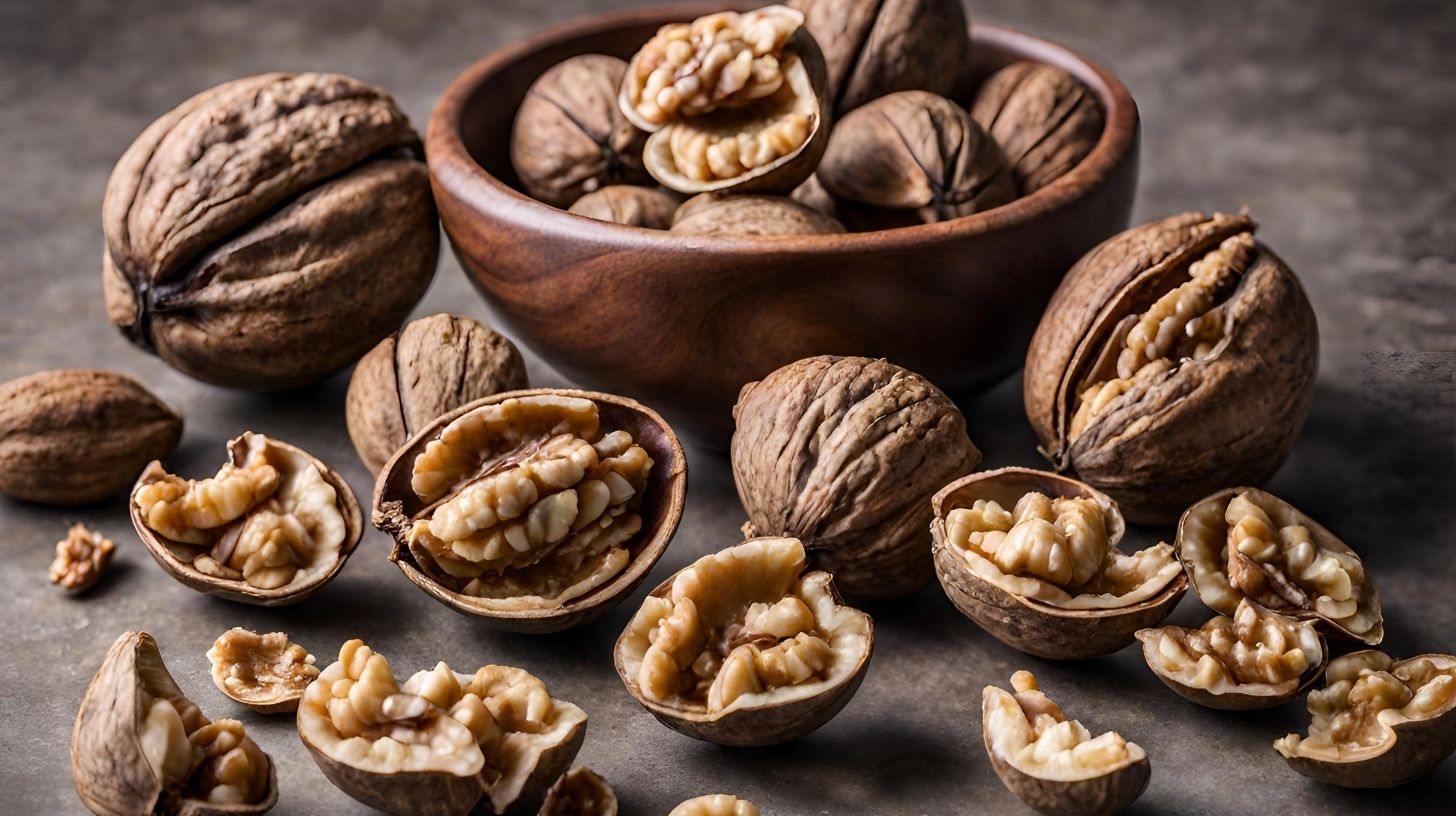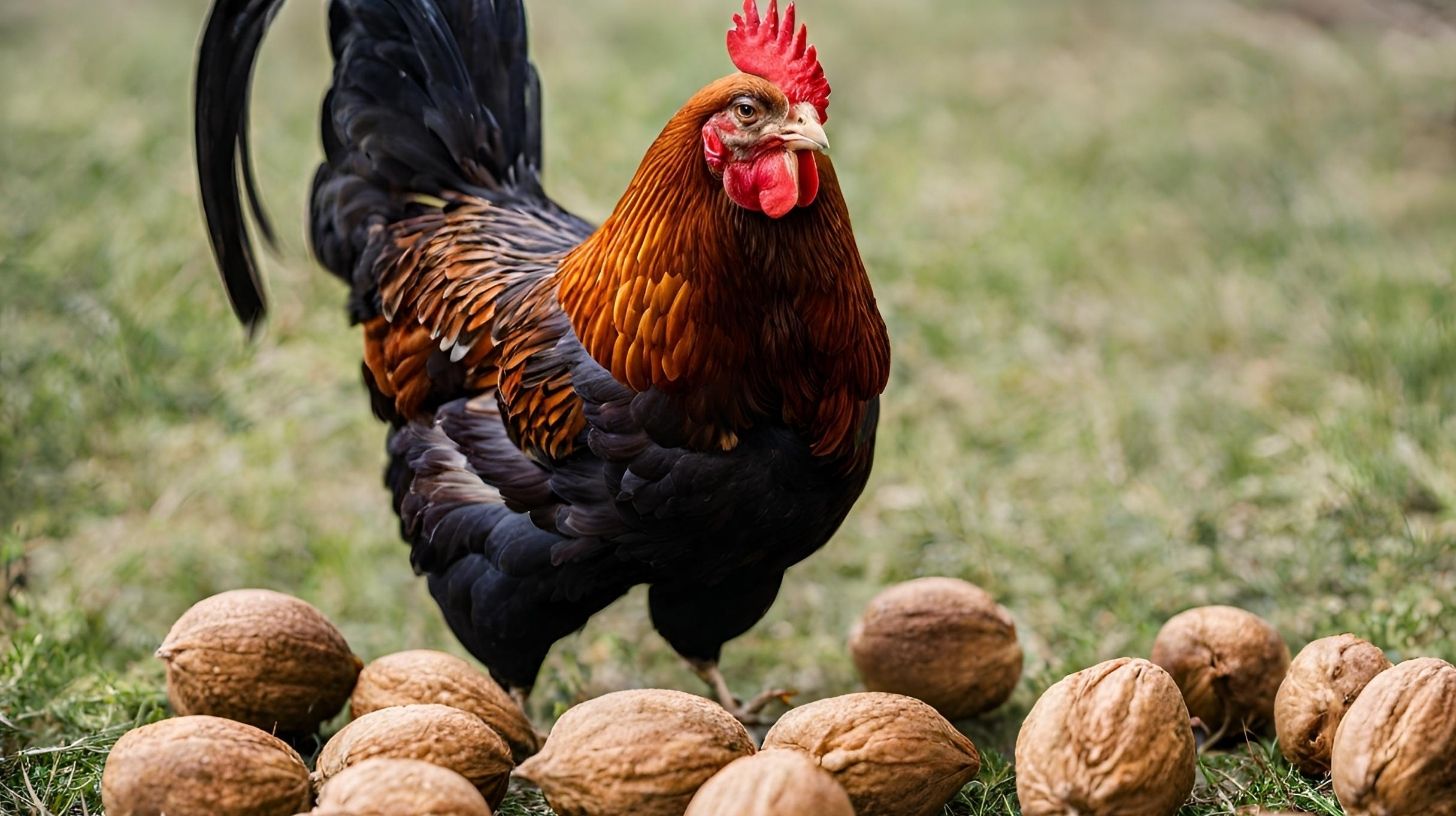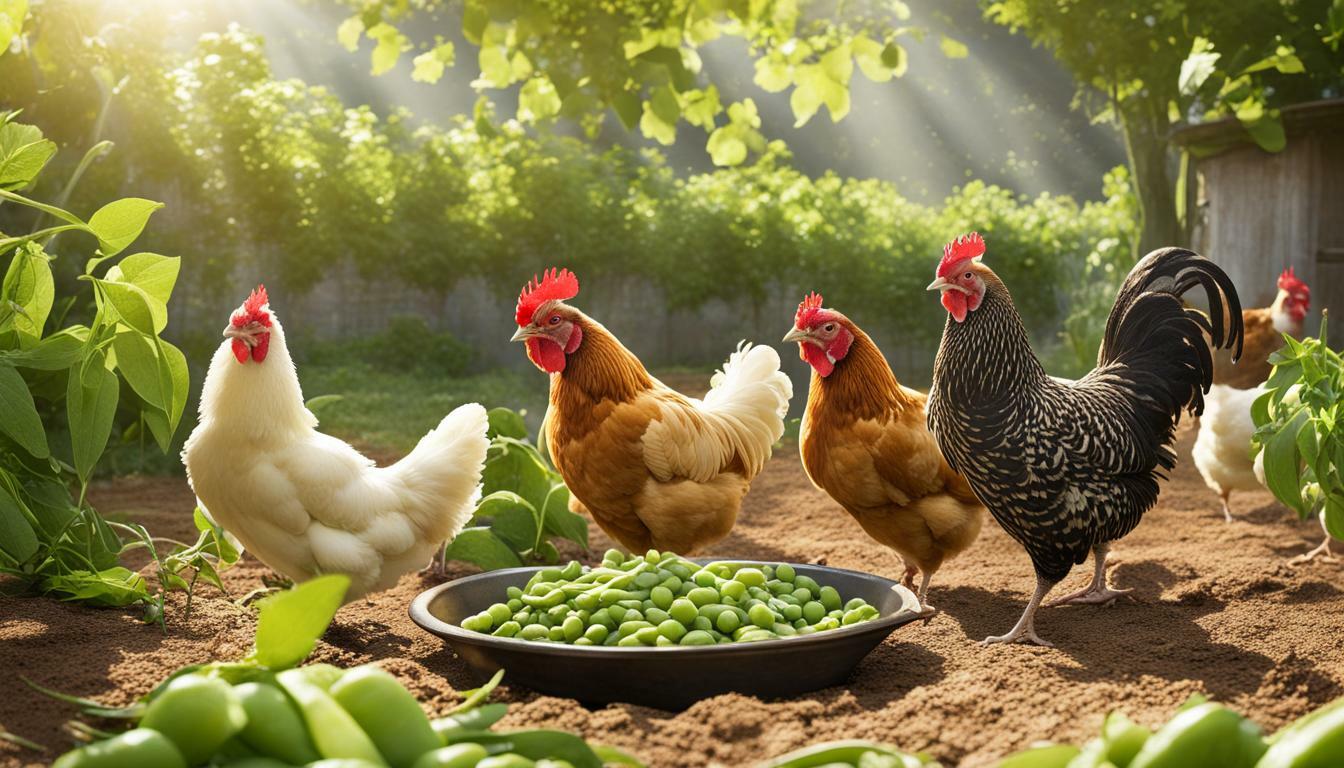Do Chickens Eat Walnuts? A Guide for Chicken Owners

Table of content:
- Are Walnuts Safe for Chickens to Eat?
- How Many Walnuts Can Chickens Eat?
- Are Walnut Shells Safe for Chickens?
- Do Chickens Like Eating Walnuts?
- What Types of Walnuts Can Chickens Eat?
- Are Black Walnuts Safe for Chickens?
- Are Spoiled or Moldy Walnuts Safe for Chickens?
- Do Chickens Eat Cracked Walnuts?
- Do Chickens Eat English Walnuts?
- Are There Any Risks of Feeding Walnuts to Chickens?
- What Precautions Should Be Taken When Feeding Walnuts to Chickens?
- Frequently Asked Questions
- Conclusion
Walnuts can make a healthy, natural treat for backyard chickens when fed occasionally and in moderation. As with any treat, there are some important factors to consider before tossing walnuts to your flock.
Key Takeaways:
- Walnuts can be fed to chickens in moderation as an occasional treat. Some key considerations:
- Walnuts provide vitamins, minerals, protein, and healthy fats. However, they are high in fat content.
- Feed no more than 1-2 walnuts per chicken, 2-3 times per week at most.
- Only feed chickens fresh, mold-free walnuts. Rancid or moldy walnuts can be toxic.
- Crush walnuts into smaller pieces before feeding to reduce choking hazard.
- Introduce walnuts slowly and watch for signs of crop impaction or other issues.
 Are Walnuts Safe for Chickens to Eat?
Are Walnuts Safe for Chickens to Eat?
Walnuts are generally considered safe for chickens to eat. In fact, walnuts contain several beneficial nutrients that can contribute to a balanced diet.
Some key nutritional benefits of walnuts for chickens include:
- Protein – Walnuts contain around 15g of protein per 100g, providing amino acids for growth and egg production.
- Healthy Fats – Walnuts are high in polyunsaturated fatty acids, including omega-3s, for skin/feather health.
- Vitamin E – Walnuts are very high in vitamin E, an essential antioxidant for immune function.
- Minerals – Walnuts contain magnesium, manganese, copper, and other minerals chickens need.
However, there are also some potential downsides of feeding walnuts to chickens:
- High Fat – Around 65% of walnuts’ calories come from fat. Too much fat can cause obesity and liver issues.
- Anti-Nutrients – Walnuts contain tannins and other anti-nutrients that limit nutrient absorption.
- Allergies – Tree nut allergies in humans raise concerns about nut exposure for backyard eggs.
So in moderation, walnuts are generally considered a safe, healthy treat for chickens. But some precautions are needed.
How Many Walnuts Can Chickens Eat?
Walnuts are very nutrient dense and high in fat, so chickens only need 1 or 2 walnuts at a time.
Most experts recommend feeding chickens no more than 1-2 walnuts per bird, 2-3 times per week at most.
This limits their fat intake while still allowing chickens to benefit from the nutrients in walnuts.
Free-choice feeding of walnuts allows chickens to overconsume fat and anti-nutrients. Monitoring treat intake prevents issues.
Walnuts should always comprise a small portion of a chicken’s diet. A diverse diet with moderation of treats is ideal for nutrition.
Here are some general walnut feeding guidelines for chickens:
- Adult large breed chickens (Rhode Island Red, Plymouth Rock): 1-2 walnuts per chicken, 2-3 times weekly
- Adult bantams and smaller breeds: 1 walnut per chicken, 2 times weekly
- Chicks: Very finely crushed walnut pieces, once or twice a week
Adjust quantities based on your chickens’ body condition. Obese or overweight chickens should eat walnuts rarely, if at all.
Are Walnut Shells Safe for Chickens?
The shells of walnuts are indigestible and provide no nutritional value to chickens. They are also a potential choking risk.
For these reasons, chickens should not be fed whole walnuts or walnuts still in the shell.
Always remove walnut shells before feeding chickens the nutmeat inside. Then break the walnut meat into smaller pieces if needed.
Do Chickens Like Eating Walnuts?
Most chickens enjoy walnuts as an occasional treat! Here’s why walnuts are a tempting snack for chickens:
- Taste – Chickens are drawn to the nutty, earthy flavor of walnuts.
- Texture – The crunchy texture is ideal for crushing and pecking.
- Fat and protein – Chickens are attracted to energy-dense foods.
- Boredom breaker – Nuts offer mental stimulation and enrichment.
Make walnuts more enticing by crushing them into bite-sized pieces and mixing small amounts into feed or scratch.
Spreading crushed walnuts in the run or scattering whole ones in leaf litter provides motivation for natural foraging behaviors.
Always monitor treat intake and adjust quantities based on your chickens’ interest level.
 What Types of Walnuts Can Chickens Eat?
What Types of Walnuts Can Chickens Eat?
The most common walnuts sold in grocery stores are English or Persian walnuts (Juglans regia). These are safe for chickens in moderation.
Other walnut varieties chickens can eat include:
- Black walnuts (Juglans nigra)
- White walnuts (Juglans cinerea)
- Butternuts (Juglans cinerea)
However, there are some risks with specific types of walnuts:
- Moldy or rancid walnuts – Potentially fatal mycotoxins
- Spoiled walnuts – High risk of harmful bacteria like Clostridium botulinum
- Rotting walnuts – Fungal toxins hazardous to chickens
Always inspect walnuts carefully and discard any with molds, fungus, dark spots, or rancid smells.
Are Black Walnuts Safe for Chickens?
Black walnuts are safe for chickens but may be more problematic than English walnuts.
Issues with black walnuts include:
- Very high tannin content – Causes stained egg yolks
- Lower nutrient density – Less protein, vitamins than English walnuts
- High juglone content – Potential toxicity at high doses
- Messier hulls – Can stain feathers and be difficult to remove
Feed black walnuts even more sparingly than other walnut varieties. Crush thoroughly and limit treats to 1-2 times per month for most chickens.
Monitor egg yolk color when feeding black walnuts – pronounced dark orange yolks are a sign chickens are getting too many tannins.
Are Spoiled or Moldy Walnuts Safe for Chickens?
Spoiled, moldy, or rotting walnuts are unsafe and potentially toxic for chickens.
Walnut shells provide an ideal environment for fungal and bacterial growth. Common risks of spoiled walnuts include:
| Hazard | Description |
|---|---|
| Mycotoxins | Toxins from molds and fungi can be fatal to chickens |
| Salmonella | Bacteria that causes fever, diarrhea, and death |
| Clostridium botulinum | Bacteria producing a deadly neurotoxin |
| Aspergillus flavus | Fungus that produces cancer-causing aflatoxins |
Always inspect walnuts carefully before feeding. Signs of spoiled walnuts include:
- Visible mold, fuzz, or fungus
- Dark water spots inside the nutmeat
- Shriveled, dried out, or mushy texture
- Strong rancid or bitter smell
Discard any walnuts showing these signs of rotting. The toxins can persist even if moldy areas are removed.
When in doubt, throw it out. Health risks make spoiled walnuts unsafe chicken feed.
Do Chickens Eat Cracked Walnuts?
Cracking or crushing walnuts before feeding makes them safer and easier for chickens to eat.
Benefits of cracked vs. whole walnuts for chickens:
- Easier to chew and digest
- Reduced choking risk
- Faster nutrient absorption
- Encourages pecking and foraging
Cracking tips:
- Use a nutcracker, small hammer, or pliers to lightly crack shells
- Remove all shell fragments to prevent internal injury
- Break walnut meats into ~1/4″ pieces for easiest eating
- For young chicks, finely grind walnuts into a meal or powder
Avoid large, whole walnut pieces to prevent crop impactions. Crushing lightly pre-digests walnuts for your flock.
Do Chickens Eat English Walnuts?
Yes, English (or Persian) walnuts are a nutritious, safe treat for chickens in moderation.
Compared to black walnuts, key benefits of English walnuts for chickens include:
- Higher in omega-3s – Support egg & brain health
- Lower in tannins – Won’t discolor egg yolks as easily
- Less juglone – Lower toxicity risks
- Easier to crack – Thinner shells than black walnuts
- Less staining – Won’t dirty feathers as much
- More nutrient dense – More vitamins and minerals
English walnuts are easier to find year-round than other walnut varieties. When feeding walnuts, choosing English over black provides more benefits for your flock.
Are There Any Risks of Feeding Walnuts to Chickens?
While walnuts are generally healthy for chickens, some potential risks include:
Fatty Liver Disease
Excessive fat from walnuts could contribute to fatty liver disease. Limit treat amounts and frequency.
Crop Impactions
Whole walnuts or pieces that are too large can get stuck in a chicken’s crop. Always crack shells and crush meats.
Allergic Reactions
Dust from walnut shells may cause respiratory issues in chickens with allergies.
Reduced Nutrient Absorption
Anti-nutrients like tannins and phytic acid in walnuts can bind minerals and inhibit nutrient absorption.
Juglone Toxicity
Black walnuts contain high levels of juglone, which can be toxic at very high doses unlikely to be reached with occasional feeding.
By feeding a limited number of crushed walnuts infrequently, risks are minimal. Monitor chickens closely when introducing new treats.
What Precautions Should Be Taken When Feeding Walnuts to Chickens?
Follow these tips for safely feeding walnuts:
- Start slowly – Introduce just a few walnut pieces at first to watch for signs of crop impaction, allergies, or other issues.
- Limit frequency – No more than 1-2 times per week for most chickens based on breed size and health.
- Limit portions – Just 1-2 walnuts per adult chicken is sufficient at one time. Adjust for smaller or younger chickens.
- Always supervise treat time – Prevent chickens from gorging and monitor for choking hazards.
- Remove shells – Completely remove and discard all walnut shell pieces to prevent internal punctures.
- Crush thoroughly – Break walnuts into small, bite-sized pieces for easier eating and digestion.
- Inspect for freshness – Discard any walnuts that smell rancid or have dark spots, mold, etc.
- Store walnuts properly – Refrigerate any you don’t use right away. Walnuts go rancid quickly at room temperature.
With proper precautions, walnuts can be a safe, nutritious backyard chicken treat!
Frequently Asked Questions
Can chickens have walnuts every day?
No, walnuts should only be an occasional treat. Feeding daily is too much fat and anti-nutrients. Limit treats to 2-3 times per week.
What nutrients do walnuts provide chickens?
Walnuts offer protein, omega-3 fatty acids, vitamin E, manganese, and other minerals. In moderation, these support egg production, immunity, feathers, and more.
At what age can baby chicks eat walnuts?
Wait until chicks are fully feathered and 8 weeks old before offering very small walnut pieces. Avoid powdered walnuts which chicks could inhale.
Do roosters eat walnuts?
Yes, roosters can safely eat a couple walnuts 2-3 times per week. Adjust portions based on the rooster’s size and activity level.
Can walnuts help chickens lay eggs?
The omega-3s, protein, and nutrients may slightly boost egg production. But a well-balanced layer feed is much more important for good laying.
Do walnuts increase cholesterol in chicken eggs?
No, dietary cholesterol contributes very little to egg cholesterol levels. As an occasional treat for hens, walnuts won’t significantly impact egg cholesterol.
Conclusion
In moderation, walnuts can provide a beneficial nutritional boost for backyard chickens. Their high fat content makes walnuts best reserved as a special treat.
Feed chickens limited quantities, no more than 1-2 walnuts per bird 2-3 times weekly. Always inspect walnuts for freshness and remove all shell pieces. By following some basic precautions, chicken owners can safely allow their flock to enjoy pecking these nutritious nuts!
Welcome. I’m Adreena Shanum, the proud owner of this website, and I am incredibly passionate about animals, especially poultry. I founded adreenapets.com as a labor of love, stemming from my desire to share my knowledge and experiences with poultry enthusiasts worldwide.




